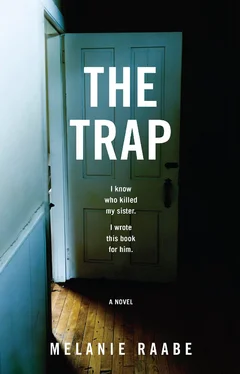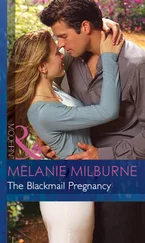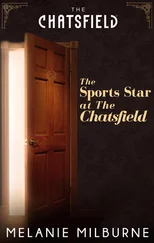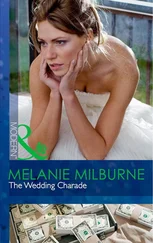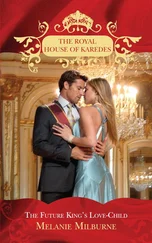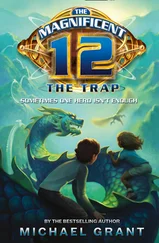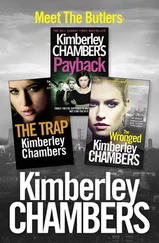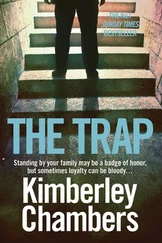She laughs her little laugh, because she knows I never get truly angry, and because swearwords sound ridiculous coming from my mouth — wrong, somehow, and put on, as if I were imitating some actor. She blows a chewing-gum bubble— pop —and says, “In my experience, men don’t let you steal them if they don’t want you to,” and then she laughs this laugh and heads off for the kitchen, leaving me standing there, and it’s only then that I notice the music — the Beatles, on vinyl— my Beatles record that the little cunt stole from me; you never listen to it anyway, Linda.
I can’t believe it — she simply buggers off and fucking makes herself a fucking salad, and I have no choice but to trot along after her like a fool, still yelling my head off: What is this, Anna? What is this? You already have everything you want. You’re not interested in Marc. She ignores me until I grab her by the arm and say it again: You’re not remotely interested in Marc. He’s not even your type, so what’s all this about? What is this, Anna? You’re not fifteen anymore. It’s not funny to steal my boyfriend for the hell of it. We’re not teenagers now and, let’s be honest, it wasn’t funny when we were.
But this is different. She tears her arm free. You’re crazy, Linda. I don’t know what you want from me. You and your stories: you always have to make such a drama out of everything. Snap out of your fucking victim role. I can’t take anything from you that you don’t let me take. I can’t steal any man from you that you don’t let me steal. Your whining is really getting on my nerves — nobody understands me, nobody likes me, I’m so fat, I’m so ugly, nobody reads my stories, I’m so broke, I’m so miserable, boo hoo hoo. .
For a moment, everything goes black — black with anger — but I fight the anger. I’m not fifteen anymore; I said so myself. I’m not a fifteen-year-old loner. I don’t have spots or spare tires or ridiculous glasses: I have money, I write, I’m making a name for myself, I have a fiancé, I’m a grown-up woman. I don’t have to let my sister bait me; I can simply breathe away my anger, take the wind out of Anna’s sails, turn around and go home. I don’t have to play along with her, I don’t have to let her provoke me. I can simply go home before this gets out of hand — and these things always get out of hand and Anna always ends up winning, and I always end up being blamed, because Linda tends to exaggerate a bit; Linda can be melodramatic, she’s always been like that; Linda and her stories.
I breathe in and out, in and out. It works well; I manage to calm down. The colors return to normal; the world loses its reddish hue, and all is well. Then Anna says, “How do you know what my type is anyway?” And when I say, “What?” she repeats her question with exaggerated clarity: “How…do…you…know…what…my…type…is…anyway?”
I stare at her — her round eyes and pointy canines — and she’s finished chopping the tomatoes and wipes her damp fingers on a tea towel and looks me in the face: “Marc is an attractive man.”
I can only stare at her, and when I do eventually manage to choke something out, my voice is hoarse: “But you’re not interested in Marc.”
“Maybe not.”
Anna shrugs her narrow shoulders. She smiles, blowing a chewing-gum bubble. Pop.
“Maybe I just want to see if I can.”
All at once, an unbelievable pain shoots through my head — keen and piercing. I see red, and the knife finds its way into my hand, and I don’t remember exactly what happened next — no, I don’t really remember, I quite honestly don’t remember. The rest is silence, and the smell of iron and bone. I am stunned, truly stunned. I don’t understand, my brain refuses to understand, and I wipe away fingerprints and then we’re in the living room; Anna has staggered into the living room — not far, a few meters; it’s a small flat. I open the terrace door (air, I need air) and the world is red, deep red, and I’m not breathing air; I’m breathing something red, something thick and gelatinous, and I hear an awful tune: All you need is love, la-da-da-da-da —sweet and mocking— love, love, love . The world looks peculiar — sharp-edged and hard. I’m in a photograph, and somebody has turned up the color saturation as high as it will go. I’m disorientated. What has happened? Why is Anna lying on the floor? What’s that blood doing there? Blood gives Anna the creeps — how can she be lying in a pool of blood that is spreading almost to the tips of my shoes?
I take a step back; I stare at Anna on the floor, dead or dying. My God, what has happened? Somebody must have been here — where is he?
A breath of air wafts across my face and I look up, sensing a movement, and give a start. There is somebody there, disappearing through the terrace door. Oh my God, oh my God, oh my God, oh my God, there’s somebody there. Don’t turn around. But he does turn around, and our eyes meet, and I know he killed Anna. The moment drags on, and then the man’s gone and all I can see are the curtains at the terrace door blowing in the wind like willow branches, and I avert my eyes and see Anna in a pool of blood — and my brain doesn’t understand what’s going on — how could it? I let myself in, because Anna didn’t answer, and I came into the flat and found Anna like this, dead and bleeding, and there was this man at the terrace door — oh my God, oh my God — and I thought he was going to kill me too — that I would die, like Anna — oh my God, please, please, dear God, I’m so scared, it smells of blood, there’s blood everywhere.
I pick up the phone and call the police. I’m trembling and whimpering, and I think of the man at the terrace door, in the dark, barely visible. I only saw him briefly, but those eyes — those cold, pale eyes — I’ll never forget, not as long as I live.
The police come. I sit there and stare at Anna, and the police ask me questions and wrap me up in a blanket. There’s this good-looking police officer with different-colored eyes, and I can’t speak at first, not at all. I don’t know what’s going on. But I make an effort — such a nice man, I’d like to help him, and I pull myself together and tell him about the cold, clear eyes in the dark and the terrace door and how it’s not possible that Anna’s lying there in a pool of blood, because Anna freaks out at blood. I ask him why and he promises to find out, and at some point there’s a stretcher and a photographer and more police, and then I’m in a police station and then I’m in bed and my parents are there — oh my God, oh my God, no.
Marc is there too. He sits down beside me and strokes my hair mechanically — it’s all so awful, my poor princess, oh my God. Later he makes a statement — the same statement as everybody else, the same statement my parents make, and all our friends. The story they have spun around themselves and would defend with their lives: a happily married couple and two inseparable sisters who adore one another. No, they never quarreled, never, not even when they were little, and certainly not as adults. Little fits of jealousy between sisters? Goodness, no, nothing like that — what nonsense, what a cliché. They loved each other, got on well, thick as thieves, the pair of them — adored one another, inseparable.
I repeat the story about the man with the pale eyes and forget it’s a story; I’d forgotten that, even as I was making it up. I tell my story and I’m good at telling it (Linda and her stories). I tell my story over and over again, I tell it for my life, and I get drawn into it, I become one of the characters — the murder victim’s sister, desperate and broken, lonely and withdrawn—
“She never really recovered, poor thing, the two of them adored one another. Inseparable, they were.”
Читать дальше
